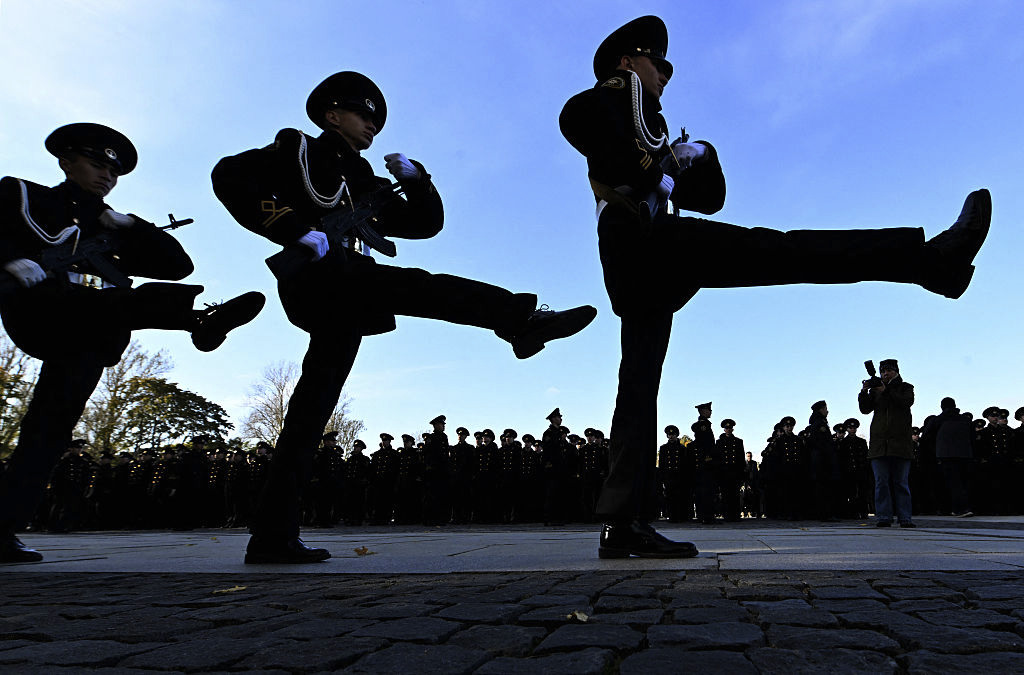
"Ha! Ha!" This was how, the other day in Moscow, Russian National Security Advisor Dmitry Medvedev reacted to a quip by US President Donald Trump asserting that Kyiv "can win all of Ukraine back to original borders where this war started."
Dmitry Alexyevich, who once served as a parenthetic president of Russia, was seen in the West as a reformer who might lead his country into the European orbit, whatever that meant. Today, acting as deputy chief of Russia's National Security Council, he is President Vladimir Putin's bully boy, threatening Western nations with nuclear war.
But is the idea of winning this war against Russia just another Trumpian flash of imagination, as was his assertion a year ago that he could terminate the war in a jiffy?
At first glance, the idea of winning a war against Russia might sound hallucinatory. The largest country in the world, a former superpower with the biggest arsenal of nuclear weapons, Russia was born and bred in war from its inception as a more or less autonomous state in Kiev in 882.
By some accounts Russia, including its later version as the USSR, has been involved in over 120 wars, big and small, some 40 of them in the 19th and 20th centuries.
Russologist Gregory Carleton argues that Russia is the product of what he calls "defensive expansionism." Russian geography provides few natural defenses such as seas, high mountain ranges, and deep woodlands. This means that whatever is established as Russian territory immediately needs a glacis against future foreign aggression. Then it is the glacis that is threatened, requiring further expansion. This was how the tiny Rus state of Kiev ended up extending from the Baltic Sea to the Pacific Ocean, across 11 time zones.
"Russians have always lived with fear of extinction," wrote Ahmad Mirfenderky, a leading Iranian russologist and long-time ambassador to Moscow in the last century. "The bear is constantly imagining the hunter, and ready to jump on any shadow."
That may explain Putin's attack on Ukraine for his unjustified fear it might join NATO, something almost impossible at the time because of the treaty's membership rules. But even if Ukraine is annexed, Russia would still look for another glacis until it reaches the Atlantic Ocean.
"Russia won't stop until it is stopped," Mirfenderesky wrote on Moscow's dream of annexing Iran and reaching the Indian Ocean.
A history of Russian wars depicts a seesaw in which victory and defeat have alternated with remarkable regularity. It also shows that Russia can and has been defeated, making Trump's recent tweet something more than a rhetorical stab.
A catalogue of those wars could fill a book. But some examples might serve as an appetizer for further study.
Russia's first big defeat came in 1169, when it had to surrender to a coalition of Sweden, Lithuania, Latvia, Estonia and Poland after 25 years of war. The next big defeat came in 1616-17 in another war with Sweden, as a result of which Russia was cut off from the Baltic Sea. In 1634, Russia suffered another defeat against Poland and Lithuania, leading to the humiliating Treaty of Polyanovka.
In 1651-53, Russia was defeated by the Safavid Shah Soleiman of Iran in the Sunzha River battle that kept Russia out of the Caucasus for 200 years.
In 1652, Russia fought a series of battles against the Qing dynasty of China and lost territory north of the Amur River.
Fast forward to the 20th century: Russia's most humiliating defeat came in 1904-5, when Meiji Japan attacked and destroyed the Russian fleet in the Sea of Okhotsk and defeated elite Russian divisions in the Far East, annexing the Kuril archipelago. Russia recognized Japan's occupation of the Korean Peninsula and Manchuria and allowed it to set up a base in Port Arthur.
The recent fall of Syria's Bashar al-Assad was also a military defeat for Russia's expeditionary force of thousands, who carpet-bombed Syrian cities from the air and guided pro-Assad forces on some battlegrounds.
Finally, one may even add the Cold War as another Russian defeat.
Russia's biggest historic victories in the Napoleonic Wars came in alliance with European powers, and in the Second World War, with the US joining Britain and Russia to defeat Hitler's Germany.
Yes, Trump may be right; Russia can be defeated.
But to those who ponder expanding the war against Russia, a word of caution may be in order. Russia did lose 19 of its 40 major wars. But a pattern of taking revenge was established under which Russia almost always recovered what it had lost -- from the Baltics to Kuril -- in a seesaw struggle that made victory and defeat two faces of a coin constantly tossed up.
Medvedev's nuclear gesticulations notwithstanding, Russia could theoretically be driven out of Ukrainian lands it occupies, including the Crimean Peninsula. But there is no guarantee that such an outcome would cure Russia's affliction with defensive expansionism and its thirst for revanchist response.
Putin's general military call-up, the largest since 1916, is bound to encourage those who advocate defeating Russia.
And that refers us back to the Florentine clerk: Do not wound a deadly enemy and let him live! Either kill him or turn him into a friend.
It is to Trump's credit that, unknowingly perhaps, he has pondered both options, with a tilt towards the latter.
Amir Taheri was the executive editor-in-chief of the daily Kayhan in Iran from 1972 to 1979. He has worked at or written for innumerable publications, published eleven books, and has been a columnist for Asharq Al-Awsat since 1987.
Gatestone Institute would like to thank the author for his kind permission to reprint this article in slightly different form from Asharq Al-Awsat. He graciously serves as Chairman of Gatestone Europe.


